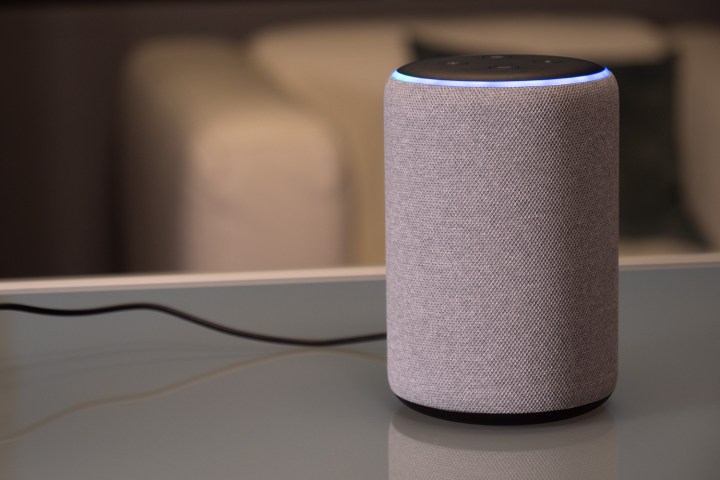
Alexa is apparently listening a little too closely for some people’s comfort. It was recently revealed that Amazon employees can listen to recordings from owners of Alexa devices. Now, California wants to take action to limit that type of intrusion.
Lawmakers in California have introduced the Anti-Eavesdropping Act, Assembly Bill (AB) 1395, which would limit how companies that make smart speakers and voice assistants can collect and save recordings. Under the proposed rule, companies like Amazon, Google, Apple and others would only be able to store recordings when users have given clear and written consent. That means the cache of recordings that Amazon and other companies often use to fine-tune its algorithms would shrink considerably unless people willingly allowed their conversations with voice assistants to be stored.
“Recent revelations about how certain companies have staff that listen in to private conversations via connected smart speakers further shows why this bill is necessary to protect privacy in the home,” Republican Assemblyman Jordan Cunningham, the bill’s author, said in a statement according to the Mercury News.
Should the bill pass, it could present a considerable hindrance to Amazon, Google, and the many other companies that rely on data and conversations collected from voice assistants. While it’s possible to delete recordings of conversations with voice assistants, those recordings are made by default. Under the new law, the voice assistants would not store that information unless and until a user gave permission to do so.
The companies that are being targeted by the bill are likely to oppose it. While Amazon and Apple have yet to publicly comment on the proposed law, a spokesperson for Google told the Mercury News that the company believe “the combination of strong and balanced regulations, with products that are designed with privacy in mind, will help provide individuals with confidence that they’re in control of their personal information.”
California isn’t the first state to try to place limits on these practices. Illinois attempted to pass a law that would have made it illegal for devices to remotely record audio without notifying the owner. Google and Amazon lobbied against that legislation.


